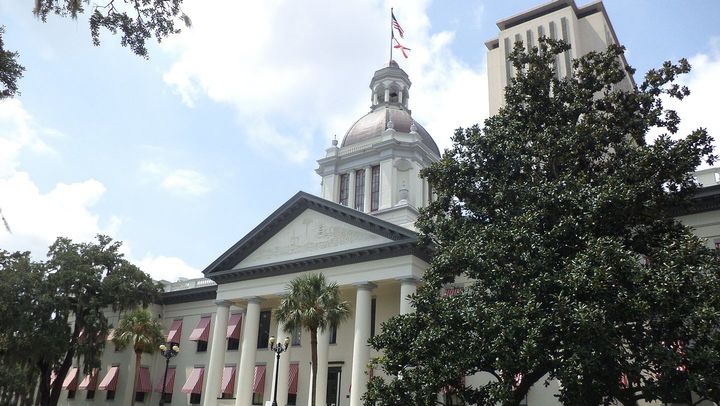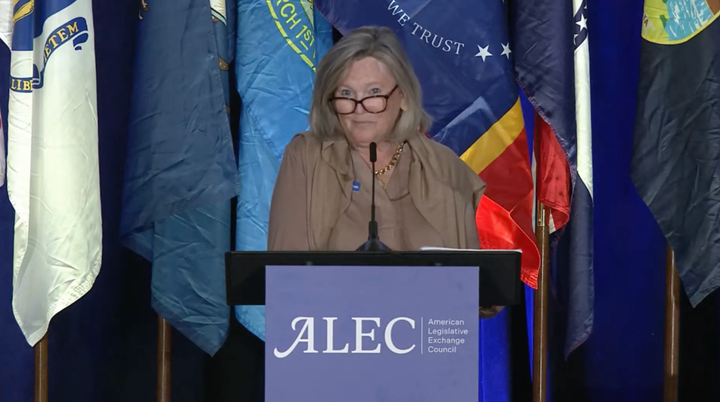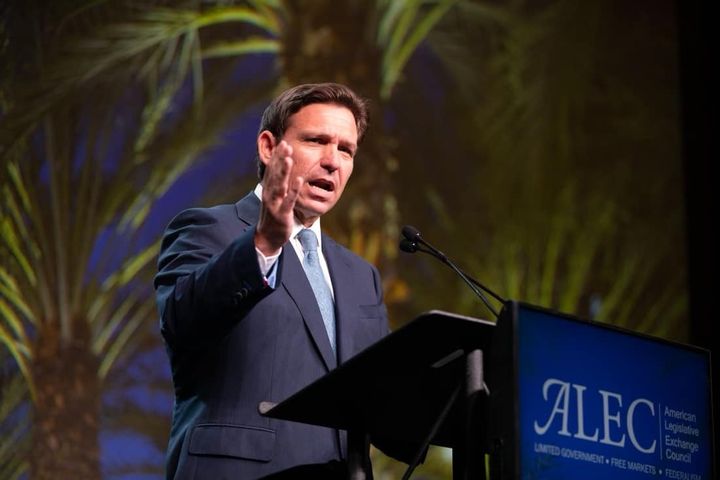State Republican lawmakers in Florida made news earlier this year when they passed new restrictive voting legislation, but another elections-related bill they passed at the same time received far less attention despite its likelihood to empower large donors in the state.
Tucked into a bill that was primarily touted by its proponents for placing new contribution limits on ballot initiative campaigns is language that preempts counties, municipalities, or other local government entities in the state of Florida from enacting contribution limits for candidates that differ from the state’s legislative candidate limit of $1,000. Any existing county or municipal limits that are not $1,000 are voided, according to the bill text. As a result, cities including Tallahassee and Sarasota and some counties that had enacted lower contribution limits in attempts to limit the influence of money in their elections will now be forced to allow candidates for its elections to accept larger checks from donors.
In Tallahassee, the state capital, the law overrode part of a ballot measure that voters approved in 2014, lowering contributions limits for candidates in the city from $1,000 to $250. That measure, which also contained a public campaign finance system and government ethics provisions, was backed by the Massachusetts-based RepresentUs. In Sarasota and Sarasota County, longstanding candidate contribution limits of $200 have been overridden by the state law. Leon County’s lower contribution limit was also struck down by the law., which was approved by Gov. Ron DeSantis on May 7.
“The ordinance reducing the contribution limit passed by 67% of the vote, clearly expressing the will of our community to reduce the influence of money in politics,” said Ben Wilcox, research director at the research and watchdog group Integrity Florida. “It’s simply arrogance for the legislature to say that it knows better than the citizens of Tallahassee.”
The headline provision of the bill, Senate Bill 1890, was a limit of $3,000 on the amount constitutional amendment campaigns could take as a campaign contribution during the signature-gathering phase of the ballot measure process. Its supporters argued that such a provision is necessary to prevent wealthy donors from having too much influence on debates affecting the state’s constitution. It had been dubbed “the anti-John Morgan bill,” after the Morgan & Morgan law firm founder provided millions of dollars in funding to measures to raise the minimum wage and legalize medical marijuana. However, the provision was struck down by a federal court after the American Civil Liberties Union of Florida argued that the contribution limit was an unconstitutional restriction on free speech.
The bill was sponsored in the state Senate by Sen. Ray Rodrigues, a Republican who represents portions of Lee County. It was passed by the Senate on a largely party-line vote, with all Democrats voting no and just one Republican breaking with his party to vote against it, Sen. Jeff Brandes who represents portions of Pinellas County. The House vote on the measure went down strictly along party lines.
Rodrigues told The Center Square reporters that he attended the American Legislative Exchange Council’s (ALEC) annual meeting in Salt Lake City this summer. The nonprofit has a history of encouraging its legislator members use preemption to override local laws it disagrees with, and the Local Solutions Support Center, a national hub for countering state preemption, has identified ALEC as the orchestrator of a recent spike in the use of preemption laws by state Republican lawmakers. ALEC generally opposes laws that constrain the flows of money in politics and has put forward model resolutions that support the Supreme Court’s Citizens United decision and oppose public campaign finance laws that seek to empower candidates who can’t or don’t want to raise campaign funding from large private donors.
Rodrigues did not respond to questions from Sludge regarding the goals of his legislation or whether it was influenced by ALEC.
“Elevating local limits may also reduce the competitiveness of municipal elections and act as an incumbent protection racket since those already in office will have the ability to raise more money from their existing donor base,” wrote Stetson University Professor Ciara Torres-Spelliscy in a Regulatory Review article that touched on the bill. “This new Florida law may also render local elected office out of the reach of first-time candidates and would-be challengers who are easily daunted by the political war chests of those already in power—an obstacle especially for nontraditional candidates such as women and people of color. Those local war chests in Florida are likely to be bigger under the new statewide law since local incumbents can now raise four or five times as much money from each affluent political donor.”
Under Florida law, counties have power to make their own laws as long as they are not inconsistent with general law, meaning that the state legislature can pass laws overriding counties. In many other states, local jurisdictions do not have authority to craft their own laws, or their legislative power is restricted to specific lists of enumerated powers spelled out by the state.
The Local Solutions Support Center has been tracking nearly 400 preemption bills that were introduced in state legislatures this year, a much higher level than in previous years. The organization calls this year’s wave of preemption laws “more pointedly political and racist in nature” and says that “preemption is part of the scaffolding of structural racism in America, and how – like voter suppression and gerrymandering – it’s used to maintain white supremacy across our institutions and keep BIPOC, women, LGBTQ people, and workers in low-wage jobs from gaining power.”
A 2021 review from the group found that 80 bills were introduced to criminalize protesting that don’t necessarily preempt local law but “undermine how local governments can manage protests within their communities.” It also found that 19 states enacted laws that prohibit localities from banning natural gas hookups in new buildings, two states passed laws making it harder for localities to protect affordable housing, and 10 states passed laws limiting local public health authority.
In a February report on preemption laws in the state, Integrity Florida suggests four policy options: requiring a supermajority vote for passage of legislation that preempts local governments, creating a single-subject requirement for preemption legislation, establishing a sunset review provision for preemptions so they are repealed unless affirmatively extended, and prohibiting any fines or punishments for local governments that violate state preemptions.



